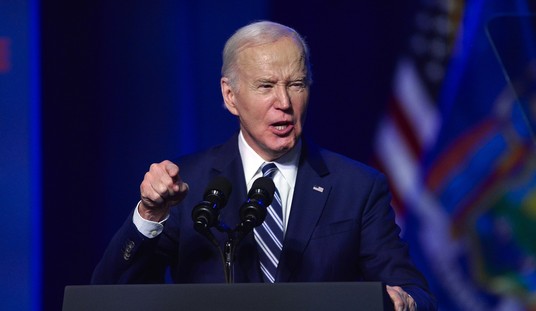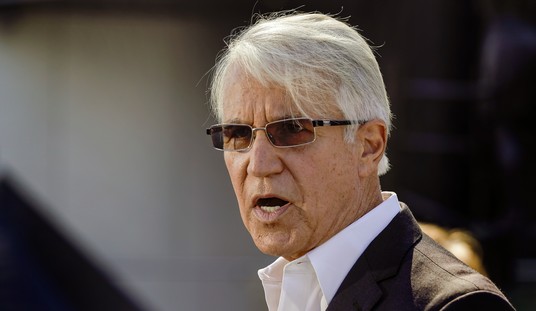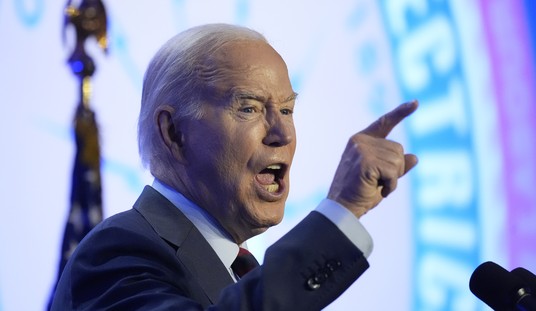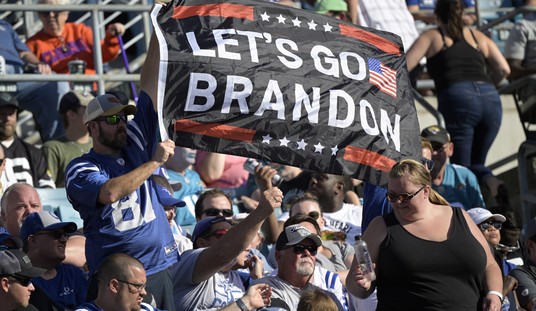As we roll into the State of the Union address, it is often observed that many of the issues obsessing our political class don’t make it into the top five when American voters are polled about their paramount concerns. The top two issues are almost always jobs and the economy. The political class, moving with the speed and confidence of used-car salesmen ingratiating themselves to fresh customers on the lot, hasten to agree that jobs and the economy are their top priorities as well. President Obama has made a comical routine of announcing, every few months, that he’s finished with all the distractions, and will now focus with absolute intensity on economic growth and job creation.
No one’s being entirely honest about this.
Of course politicians have many higher priorities than economic growth and job creation. You will never hear a “pivot to jobs” proposal from Barack Obama that would involve making the government smaller. At the moment, given his new crusade against “income inequality,” he would refuse to consider any strategy that grew the economy in an “unfair” or uneven way. He will not do anything that would usher the rising tide in to lift all boats.
In truth, nearly every politician of both parties also has an agenda that puts several items above economic growth. The central premise of activist government is that people cannot spend their money in the wise and just manner envisioned by the Ruling Class. That means the public cannot be turned loose to invest and consume as it desires. A huge Information Age economy can only grow so large in captivity.
If you push the Ruling Class hard with demands for pro-growth tax and regulatory relief, they’ll snap something about the dangers of increasing the national debt by jeopardizing tax revenues. This is pretty rich coming from people who have absolutely no problem racking up countless billions in debt for their priorities. Why are they never willing to place a bet on the creativity and industry of the American people? That’s what the “tax cuts increase the deficit” argument amounts to: an unwillingness to give the public a chance to prove that it can generate enough wealth to more than compensate for lower tax rates. The American people have done this many times in the past, but still the Ruling Class doesn’t trust them, doesn’t believe in them. Conversely, the Ruling Class has absolute and unshakable faith in the power of deficit-fueled, government-directed “stimulus” plans to fix the economy, even though those plans never work as well as advertised. Big Government can therefore be seen as a vote of no confidence in the people by their government.
The terrible thing is that the American people largely share the grim judgment of the Ruling Class. They don’t believe in themselves, either.
If they did, they would make their demands known in a voice that could not be resisted. The Ruling Class has grown highly adept at preventing such a consensus from taking shape. They’re good at persuading the people not to trust each other. It’s not just the hardcore dependency of people who think they need taxpayer handouts to survive. Far beyond that dependency class is a great swathe of middle-class voters who really don’t believe what they tell the pollsters about the importance of economic growth as the Number One issue. They think other issues are more important, and they trust the Ruling Class to define those priorities.
Since everyone says the economy and jobs are the biggest of big deals, these other priorities go politely unspoken. No one asks the Ruling Class to be honest and list the ten, twenty, or fifty things government must do, in order to justify the contention that not a dime of spending can be cut, nor a dollar of earnings returned to the people who earned them. If a Big Government politician were candid enough to spell out such a list – “Here are the ten big reasons why the private sector must remain smaller than it could be” – there would be some outrage. There would be agreement too, of course, but the ability of most voters to pretend that job creation is at the top of our combined national to-do list would be shattered. A fair number of people would be deeply insulted by a frank accounting of what the Ruling Class fears they would do, if their liberty was restored.
The State of the Union address will contain a long wish list of spending items, with costs soaring into the hundreds of billions of dollars. As President Obama counts off each item on his list, ask yourself: is this really something free people are incapable of doing voluntarily? Are these really matters we couldn’t handle more efficiently through persuasion, cooperation, and commerce? Say what you will about the wretched excesses of consumer culture, but consumerism is a form of persuasion. The reason big companies spend a ton of money on advertising and PR is that they can’t force you to buy their products. At the moment, only the government and insurance companies can do that. If you think of every lollipop demanded by President Obama as something he thinks lesser men and women should be forced to do, the State of the Union address will become far more honest, and considerably less boring.
The true top priority of most Americans is haggling a good price for what remains of their independence. There are still things they don’t trust themselves to handle, absent strict government supervision. They still have a lingering appetite for the royal splendor of events like the State of the Union address – which is, more than anything else, a celebration of the wisdom of our Ruling Class, which has many more things it wishes to make us do for our own good. The government has swelled to a size beyond the imagination of not only the Founding Fathers, but even the architects of the New Deal… and it still isn’t big enough.
It’s good for the people to settle down and watch a little performance art that reminds them of how majestic their rulers are, how much they deserve every penny of the three and a half trillion dollars they claim. They still spend hundreds of billions of dollars per year they don’t really have, which is a concrete expression of their belief that you’re still not paying them enough. In other words, the private sector is still too large. Tonight, President Obama will outline a number of ways in which he proposes to make it smaller, secure in the knowledge that whatever they tell pollsters, a critical voting mass of the American people agrees with him.













Join the conversation as a VIP Member